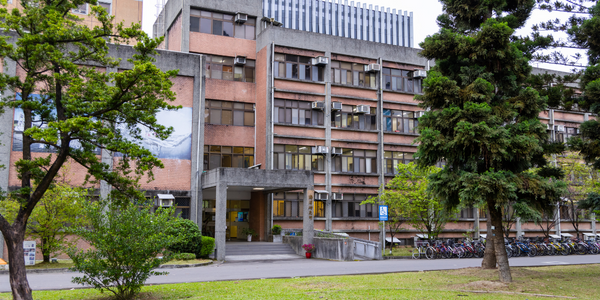Leading Health Organization Implements Hybrid Work with FM:Systems
Technology Category
- Functional Applications - Fleet Management Systems (FMS)
- Infrastructure as a Service (IaaS) - Hybrid Cloud
Applicable Industries
- Buildings
- Healthcare & Hospitals
Applicable Functions
- Maintenance
- Product Research & Development
Use Cases
- Fleet Management
- Smart Campus
Services
- System Integration
About The Customer
The customer is a leading health and well-being organization that delivers an ever-better healthcare experience to everyone in its communities. Leveraging its nearly 90 years of experience and expertise from its two founding organizations, this health and well-being organization helps people find their version of healthier living through a broad range of health plans and tools that make navigating health and well-being easier. The organization has 5000 employees, 2.4M members, and a 522,000 square feet campus with four multi-level buildings.
The Challenge
In the summer of 2019, two healthcare organizations announced their intent to merge. To accommodate the growing, soon-to-be 5,000-person team, the organizations purchased an expensive 42-acre property to become its new headquarters. The property included four multi-level buildings amounting to a combined 522,000 square feet. It also featured an additional 14,000 square foot mansion, where the previous company that owned this space would host events. The new campus represented combining two of New England’s largest and most iconic nonprofit healthcare companies that, for decades, were competitors. Planning the office opening involved needing to prepare the new headquarters for a hybrid work arrangement. To streamline the tedious, cost-intensive process of moving offices, the newly combined organization needed a workplace management solution that could provide space planning, strategic planning, and room and desk booking capabilities. And, like most mergers, the organization had to navigate which existing apps and systems each entity was using could work best going forward.
The Solution
The organization chose FM:Systems workplace management solution, FMS:Workplace, to create and determine the best floor plan scenarios as well as its room, resource and desk scheduling solution, FMS:Employee, to enable a successful hybrid workplace. Together, these solutions provide a graphic view to show the percentage of reserved spaces during certain 30-, 60-, and 90-day time periods to determine when and where hotspots are occurring. FM:Systems partner, AMS Workplace Technology (AMS), was also chosen to seamlessly integrate employee badge data into the FMS:Workplace environment to provide valuable reporting and analytics. Because the new site is largely unassigned, the organization leveraged FMS:Workplace to configure locker assignment and tracking module with the help of AMS to provide employees with secure, reservable spaces to put their belongings for their in-office work days.
Operational Impact
Quantitative Benefit

Case Study missing?
Start adding your own!
Register with your work email and create a new case study profile for your business.
Related Case Studies.

Case Study
Energy Saving & Power Monitoring System
Recently a university in Taiwan was experiencing dramatic power usage increases due to its growing number of campus buildings and students. Aiming to analyze their power consumption and increase their power efficiency across 52 buildings, the university wanted to build a power management system utilizing web-based hardware and software. With these goals in mind, they contacted Advantech to help them develop their system and provide them with the means to save energy in the years to come.

Case Study
Hospital Inventory Management
The hospital supply chain team is responsible for ensuring that the right medical supplies are readily available to clinicians when and where needed, and to do so in the most efficient manner possible. However, many of the systems and processes in use at the cancer center for supply chain management were not best suited to support these goals. Barcoding technology, a commonly used method for inventory management of medical supplies, is labor intensive, time consuming, does not provide real-time visibility into inventory levels and can be prone to error. Consequently, the lack of accurate and real-time visibility into inventory levels across multiple supply rooms in multiple hospital facilities creates additional inefficiency in the system causing over-ordering, hoarding, and wasted supplies. Other sources of waste and cost were also identified as candidates for improvement. Existing systems and processes did not provide adequate security for high-cost inventory within the hospital, which was another driver of cost. A lack of visibility into expiration dates for supplies resulted in supplies being wasted due to past expiry dates. Storage of supplies was also a key consideration given the location of the cancer center’s facilities in a dense urban setting, where space is always at a premium. In order to address the challenges outlined above, the hospital sought a solution that would provide real-time inventory information with high levels of accuracy, reduce the level of manual effort required and enable data driven decision making to ensure that the right supplies were readily available to clinicians in the right location at the right time.

Case Study
Intelligent Building Automation System and Energy Saving Solution
One of the most difficult problems facing the world is conserving energy in buildings. However, it is not easy to have a cost-effective solution to reduce energy usage in a building. One solution for saving energy is to implement an intelligent building automation system (BAS) which can be controlled according to its schedule. In Indonesia a large university with a five floor building and 22 classrooms wanted to save the amount of energy being used.

Case Study
Powering Smart Home Automation solutions with IoT for Energy conservation
Many industry leaders that offer Smart Energy Management products & solutions face challenges including:How to build a scalable platform that can automatically scale-up to on-board ‘n’ number of Smart home devicesData security, solution availability, and reliability are the other critical factors to deal withHow to create a robust common IoT platform that handles any kind of smart devicesHow to enable data management capabilities that would help in intelligent decision-making

Case Study
Gas Pipeline Monitoring System for Hospitals
This system integrator focuses on providing centralized gas pipeline monitoring systems for hospitals. The service they provide makes it possible for hospitals to reduce both maintenance and labor costs. Since hospitals may not have an existing network suitable for this type of system, GPRS communication provides an easy and ready-to-use solution for remote, distributed monitoring systems System Requirements - GPRS communication - Seamless connection with SCADA software - Simple, front-end control capability - Expandable I/O channels - Combine AI, DI, and DO channels



